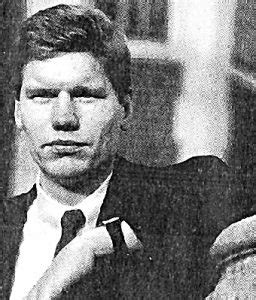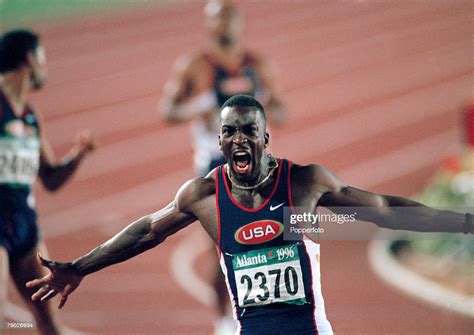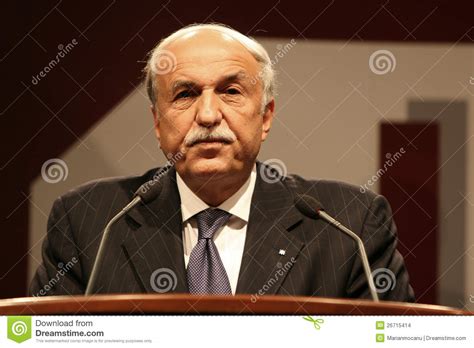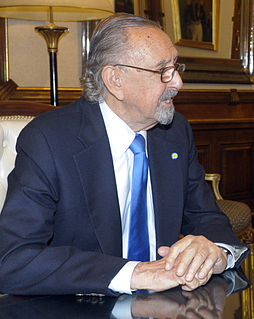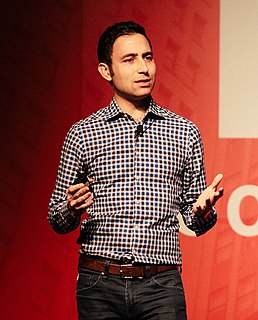Top 1200 Project Management Quotes & Sayings - Page 3
Explore popular Project Management quotes.
Last updated on November 17, 2024.
EMA research evidences strong and growing interest in leveraging log data across multiple infrastructure planning and operations management use cases. But to fully realize the potential complementary value of unstructured log data, it must be aligned and integrated with structured management data, and manual analysis must be replaced with automated approaches. By combining the RapidEngines capabilities with its existing solution, SevOne will be the first to truly integrate log data into an enterprise-class, carrier-grade performance management system.
The smart people who are straight are involved in simply the media management of what has turned into a slow apocalypse, spreading starvation, exacerbated class differences, toxified agriculture, so forth and so on. I don't believe the Establishment thinks there are solutions. Their policy is basically the management of panic, which is hardly a forward moving approach to the adventure of human civilization.
In the UK what we've found is that even businesses which prided themselves already on their efficient management find that a really beady-eyed scrutiny of their resource management, with an eye to environmental best-practice and long term sustainability, produce fresh efficiency and fresh savings that actually shock those in the company
Talent acquisition, knowledge transfer, generational diversity, and retention will continue to be serious concerns. I think the golden thread is equipping management to work with Millennials. Let's face it. We are going to see organizations needing to replace 40% to 60% of their workforce. Management has never been more important!
Every project is different. Adapting 'Robopocalypse' would be totally different than adapting, say, 'Hunger Games.' Each project has its own life and its own identity. You get into trouble when you think there's one single way to approach everything. Each project, there's a different way to attack it.
If I come in, and you're an employer, and I say, 'Well, I was a sniper in the Marine Corps. Do you have any sniper positions open?' 'No.' But if I told you that I was good at communication, good at leadership under stressful environments, team management, personnel management, leadership, being prompt, are stuff that I can bring to the table.
Family business management is a discipline that has evolved from an art into a science. The market for this line of education has been created by the growing recognition of family-run companies that shareholders are demanding greater clarity on issues ranging from succession to the management of wealth and the distribution of profits.
The one thing I will say is management is management. Culture is culture. You have to have a formula for those things. You have to believe in what you do and how you do it, but then you go to different environments and you have to be willing to adapt. You have to be willing to tweak things based on where you are.
One thing is to know how to do things and another is to make it simple and accessible to others. This is the challenge for the big players when they go into management. To do that, you have to learn and study very hard. I have read football management books, analysed myself and the way other people learn and understand things.
The central problem of management is how spontaneous interaction of people within a firm, each possessing only bits of knowledge, can bring about the competitive success that could only be achieved by the deliberate direction of a senior management that possesses the combined knowledge of all employees and contractors
You can’t mandate [cultural change], can’t engineer it. What you can do is create the conditions for transformation. You can provide incentives. You can define the marketplace realities and goals. But then you have to trust. In fact, in the end, management doesn’t change culture. Management invites the workforce itself to change the culture.
The impresario function is about intervening with the company's more administrative management structure. It is about trying to establish a sense of boundaries and budgets and milestones and so forth on a project that does not necessarily lend itself to milestones. It is about translating between the intimate interior environment of the creative work team and the company's need to make money. And finally, it is about positioning the fruits of the creative process in the marketplace and selling them.
















